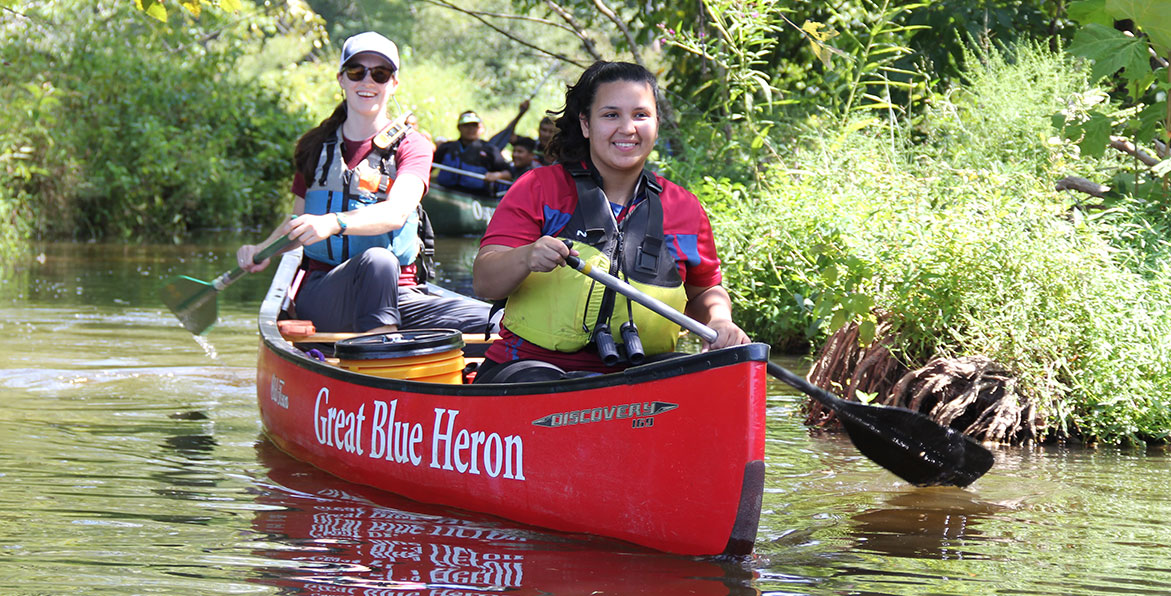Directions | Program Overview (PDF) | Meet Our Educators | Information for Parents & Guardians
Program Capacity: 26 for canoe program (grade 6 and above), 30 for stream-based program (grade 4 and above).
From Northern Virginia to Richmond to Virginia Beach, the Virginia Rivers & Streams East Environmental Education Program travels to a waterway near you. Trip participants probe the Bay's biologically diverse tidal waters to learn about the effects of creekside land uses and study the area's plants and wildlife. Using their mobile canoe rig, CBF educators lead students and teachers on explorations of some of the most scenic rivers in the watershed. The Virginia Rivers & Streams East Environmental Education Program also provides land-based programming at the Brock Environmental Center. If interested, select Brock as your preferred program location on your application.
Bring the watershed to life before and after your CBF Student Field Program using our curated list curriculum-based Resources for Teachers and Students.
About Elisabeth Reed Carter
A longtime member, Elisabeth "Liz" Reed Carter was a champion of CBF Eduation. Ms. Carter devoted her life to volunteer service. From 1980 to 1990, she served as a CBF Trustee during a critical period of growth that helped to form the organization we are today. She participated directly in the development of the environmental education program in the Richmond area, working tirelessly to promote CBF programs throughout the Commonwealth. Following her service on the Board of Trustees, she served on the President's Advisory Council from 1996 to 2012. In addition, Ms. Carter was a lifelong outdoor enthusiast who enjoyed gardening, caving, and white-water canoeing.
Individual actions make a difference. For the 17 million people who live in the Chesapeake Bay watershed, our behavior directly affects the health of the Bay, a fragile ecosystem struggling to recover from decades of pollution and neglect. The choices we make in our daily lives—whether we make our lawns Bay-friendly, buy local foods, conserve water, or the people we vote for—will mean the difference between a saved Bay and one that remains impaired. Environmental education, one of the cornerstones of CBF's mission to Save the Bay™, is the most powerful tool we have to inspire stewardship and effect improvements on the Bay.



